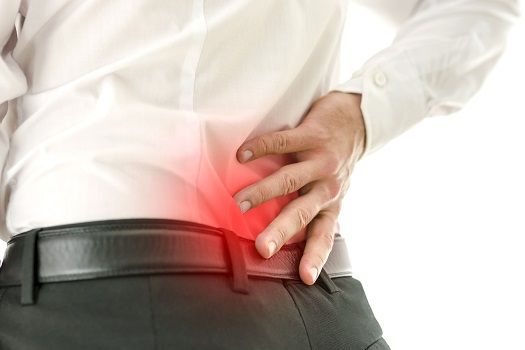Article
Stop Blaming Bad Weather for Body Pain
Author(s):
It might be time to retire the belief that bad weather is hurting joint pain even more.

Gone are the days where people can blame their achy back or stiff knees on dropping temperatures. Researchers from The George Institute for Global Health in Australia found that there is no association between the weather and certain painful conditions.
“The belief that pain and inclement weather are linked dates back to Roman times. But our research suggests this belief may be based on the fact that people recall events that confirm their pre-existing views,” Chris Maher, PhD, FACP, who led the back pain research, said in a news release.
Data from 981 patients newly diagnosed with acute low back pain were collected from primary care clinics in Sydney. In addition, data was gathered from nearly 350 patients with knee osteoarthritis. The Australian Bureau of Meteorology provided weather information during the study period. Average daily temperatures during measured in from 41.72°F to 91.04°F.
To examine the connection, the team looked at the weather at the time when patients first experienced pain. This was compared with the weather one week and one month before that first point of pain. The researchers focused on two exposure variables:
- The average of the weather variable for the day prior to pain onset
- The change in the weather variable from two days prior to one day prior to pain onset
“People were adamant that adverse weather conditions worsened their symptoms so we decided to go ahead with a new study based on data from new patients with both lower back pain and osteoarthritis,” Maher continued.
Even when taking in various parameters—precipitation, humidity, wind speed, wind gust, wind direction, and air pressure—the association between weather and these painful conditions was nonexistent. But the researchers noted that higher temperature slightly increased the odds of pain onset in one of the four analyses.
“The results though were almost exactly the same — there is absolutely no link between pain and the weather in these conditions,” Maher confirmed.
So why are so many patients convinced that weather influences pain? People are more likely to recognize the pain when it’s cold and rainy outside and ignore the symptoms when the weather is nice.
Manuela Ferreira, PhD, who led the osteoarthritis research, said that patients should focus on factors that they can control in order to better manage their painful conditions.
The study, “Acute Low Back Pain? Do Not Blame the Weather—A Case-Crossover Study,” was published in the journal Pain Medicine. The news release was provided by The George Institute for Global Health.
Related Coverage:
Sex Pain Improves After Back Pain Surgery
Insomnia Is a Serious Comorbidity for People with Chronic Pain
Treating Pain Alone Isn’t Enough for Someone with Psychological Symptoms




